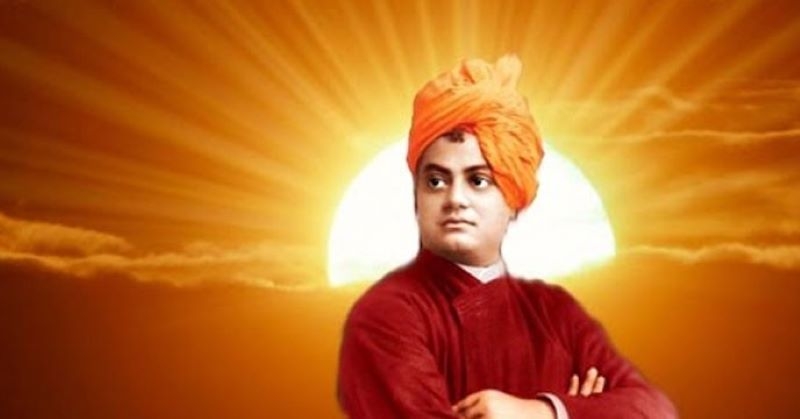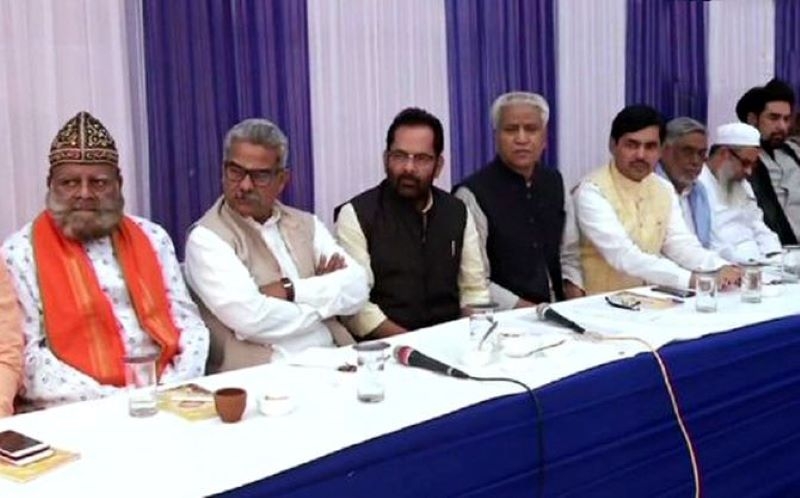Opening the RSS to the world- V: Hindutva a way of life
Hindutva is a way of life. ‘Sanatan’ stands for values and life principles that are eternal. During the freedom struggle, the national awakening came from Hindu culture traditions. Rabindra Nath Tagore first participated in the Hindu Mela, a platform to unite Indian people in 1875. Hindutva and Nationalist struggle went hand in hand. The purest form of national consciousness was seen in Bharat as Bharat Mata. For Bharat Mata, All Indians are her children.

Yoga and Ayurveda were always famous but got the global color by Prime Minister Modi. International Yoga Day is observed on 21st June by member states of the United Nations (UN). This began in 2015 at the initiative of PM Modi. The spiritual leaders like Sadhguru Jaggi Vasudev, Baba Ramdev, and Sri Sri Ravi Shankar have made efforts to popularize Hindutva as a lifestyle.
Hindutva is Indian culture where culture refers to an understanding of the network of relationships among people with different traditions and cultures. Hindutva is the expansion of the duty of care. Co-existence becomes an organic outgrowth. The Hindu way of life raises universities like Nalanda and Takshila so that these ideas could flourish.
In the modern context, Hindutva and Hindu Rashtra are the two terms that are most expressive of this way of life. This way of life and Governance can leave to a happy life. Therefore, the RSS backs these terms and is working to give it greater currency. It believes that Hindutva’s great reserves of knowledge are the source code of solution of socio-political, economic, environmental problems engulfing the world. The Hindutva of RSS is not for politics. It is for the wellbeing of all humanity.
Golwalkar’s views: Guruji Golwalkar, the second Sarsanghchalak of RSS, in his book ‘Bunch of Thoughts’ wrote: “It is the forefathers of Hindu people that have set up the traditions of love and devotion for the motherhood. They also prescribed the rights and duties with a view to keeping a glow in our mind, a living and complete picture of our motherland, and devotion to it as a divine entity. It is they who shed their blood in defense of its sanctity and integrity”.
Sanskrit is bracketed as culture and Guruji was of the view that the culture is manifested in our daily life. The Hindu nation is a result of years of experimental living. It is the comprehensive conception of civilization developed by certain values and cultural ways of life. The motherland is not a territorial map. It is a great spiritual being. When we deviate from the Hindu way of life, we experience problems emanative from caste status, superstitions, environmental degradation, etc.
The idea of Hindutva is useful in the 21st century. The author advocates that it is foolish to blame Hindutva for present ill practices and to understand Indian culture without assessing the impact of colonial history. When Doctor Hedgewar started the Sangh, he explained that Indian greatness can be achieved through the device of Hindutva. Hindutva underlines unity that runs through the Diverse, Regional, Linguistic and Geographical forms.
Hindutva has become a vigorous movement. Hindutva is the Sangh’s vision of India for the future. Hindutva is the new India it negates caste-based politics. According to it no one is high or low. All are equal. Hindu Rashtra is the derivative of Hindutva. It is the imagination of a contemporary, non-violent nation where peace and prosperity prevail, promoting the freedom of worship and equality for women.
Hindu Rashtra & Muslims: Further the author emphasizes that Hindu Rashtra is not Anti-Muslim. So many Muslims have already served Hindu Kingdoms in different high positions. To exemplify the author affirms that there is not a single stance in Hindu Rashtra of Shivaji where the Holy Quran was ever disrespected. On the basis of this example the author asserts that it is absolutely wrong to present Hindutva as a narrow idea for future generations.

Hindutva believes in the co-existence of all forms of worship. Today when the whole world is battling terrorism based on ‘Jihadi Philosophies’ that believe in the survival of only one form of worship and suppression of all others. The learned author quotes M. Venkaiah Naidu, Vice- President of India. “We Hindus not merely tolerate; we unite ourselves with enemy religion”. For the RSS, Hindutva is the comprehensive theory and a range of life practices. Propagation of Hindutva is a foremost national service. It considers Hindutva to be the natural destination of the world.
The author points out that the politicization of the languages was done for conflict. He is of the view that languages in India have their roots in Sanskrit. It is the mother of all Indian languages. The Sangh considers Sanskrit the great unifier and part of a grand heritage. Sanskrit is both the culture and civilization of India. Leaders of India from, Aurobindo to Ambedkar considered it the genius of India. It believes that Sanskrit and all Indian languages should be promoted to make Bharat a Vishwa Guru. The Sangh’s view on teaching Sanskrit is experiencing National and Global endorsements.
‘Ekatmata’ must be promoted and separatisms must be done away with. The constitution is not frozen; rather it is a dynamic test. Article 370, granting autonomous status to the state of J&K was brought in due to compulsion. Now its influence is wiped out giving the status to J&K as a real, integral part of India abrogating Article 370.
ABVP & J & K: ABVP has a long history of activism in J & K. In view of the author, In the coming days, there are a few important tasks like the restoration of the dignity and property of displeased Pandit population in the valley to get back the portion of Kashmir occupied by Pakistan, to make Kashmir free from terrorism and also Kashmir have several last decades in terms of the development because of the double disaster of terrorism controlling the politics and resources.
To achieve these, Sangh shall deploy its resources for achieving this road map. On the issue of the Triple Talaq, the whole development was steered mainly by Muslim women, but the role of Indresh Kumar deserves special appreciation. It was found that the practice of Triple Talaq was found against the basic principle of equality. The Sangh is against all kinds of discrimination against women.
In view of the author, the uniform civil code is not the only a necessity for ‘Ekatmata’, but also preventive against the exploitation of women. Social justice, Social harmony, Self-reliant society, Promotion of Hindu culture, Promotion of Indian languages, Resurgence of the Indian knowledge system, Polarization of Sanskrit studies, Environment conservation, and Gram Vikas are the major ongoing Hindutva projects of 21st century.
Hindutva is the national security armor. Whenever Hindutva is strengthening the unity and integrity of the country becomes unassailable. He is of the view that the Muslim Community has full freedom of worship and no one can poise divisive propaganda on them. It is the matter of pride that the Modi Government has extended and deepened its relations with Muslim countries in the Gulf region, both in terms of social and economic engagements.
Modi is the recipient of four Prestigious Highest Civilian Awards from Muslim countries. The author is of the view that Hindutva ethics is based on ‘Sabka Sath, Sabka Vikas’. In view of the author, social justice and caste are conjoined. Without deliberation on caste, meaningful dialogue on social justice is not possible.
To bring in ‘Samrasta’, an understanding of the societal structure and the cause of deterioration of caste commutations is essential. To abolish the caste system in India, the author appreciated the role of Gandhiji and Ambedkar. The Sangh’s faith lies in the Hindu nation. Everyone belongs to Bharat Mata and is the son and daughter of Bharat Mata.
Constructive, people-centric work: According to the author, the Sangh’s work is constructive and it is people-centric and is related to progress and unity. It works to fashion and rebuilds of Hindu society on the principle of equality. The rigidity of the caste system and its rules had to be abolished. There has to be flexibility in the choice of Profession.
Technical Education and Self-development are necessary. The Sangh being aware of prejudices and misconceptions is working in a sustained manner to develop a conducive atmosphere for social harmony. He uses ‘Hindu Utthan’ which means upliftment of each and every section of society. (To be continued …)

